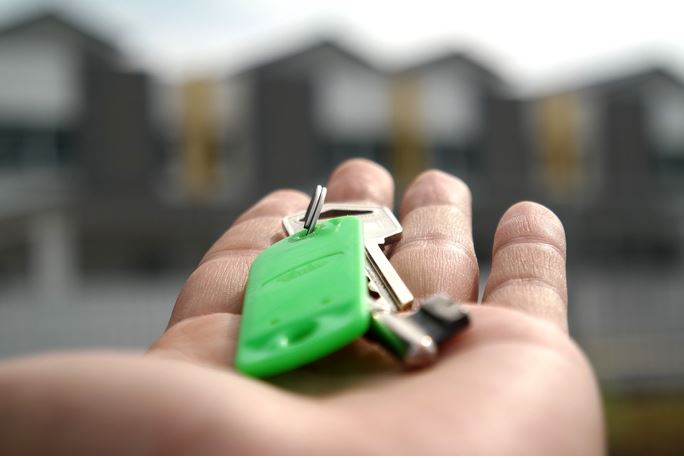
If you’re looking for a house to buy, then you’re also looking for a mortgage loan along with it. Unfortunately, there is no one-size-fits-all kind of solution available. There are many different kinds of home loans you might not have thought of, like home loans for doctors. In fact, there are several variations of mortgage loans that you’ll find available. You just need to be smart enough to know which one fits your personal needs more. That’s why we’ve taken the liberty of assembling some of the finest types of mortgage loans that you’ll ever come across.
In this article, we’re going to be looking into each of the following Canadian mortgage loans as well as discuss their pros and cons. In the end, it is up to you to determine which mortgage loan option is the most relevant for you.
Here are some of the different types of loans:
Types of Mortgage Loans Available
1. Fixed-Rate Vs. Adjustable-Rate Loan
One of the first choices that homeowners will be presented with is to decide between a fixed-rate or an adjustable-rate mortgage loan. Most loans fit into either of these categories.
Fixed-Rate Loan
The fixed-rate loan is the most common type of conventional loan. It prescribes only one interest rate – as well as monthly payments – for the loan’s duration, which is usually between 15 or 30 years. As such, this option offers homeowners to repay the loans faster. Most homeowners are looking to lower their monthly payment which usually comes from stretching out repayment over a long time.
This is for homeowners who desire predictability and are staying for a long time. Fixed-rate mortgages will need a down payment. Interest rates going up and down won’t change the terms of home loans. This way, homeowners will always know what they can expect with their monthly payment.
Adjustable-Rate Loan
Compared to fixed-rate mortgages, adjustable-rate mortgages provide interest rates that are lower than that of the former for a certain period of time – like five or 10 years, instead of the loan’s entire life. But after that duration, the interest rates (as well as monthly payments) typically adjust once a year, roughly in response to ongoing interest rates. So if you find that your interest rates are going up, the same thing will happen to your monthly payments. And if they go down, you’ll be paying less on the mortgage.
This option is for homeowners who have a bad or low credit score. Since homeowners with bad credit are unable to get good rates on fixed-rate mortgages, adjustable-rate mortgages can put down the row’s interest rates a notch to make it more manageable. It’s also ideal for homeowners who are planning to move as well as sell their house before their fixed-rate period expires and the rates start fluctuating.
2. Government-insured Loan Options
These are mortgage loan types supported by the federal government and issued by partner banks. This loan option provides an insurance policy to mortgage lenders if homeowners default on their loan for whatever reason. There are three types of government-insured mortgage loans, including:
FHA Loans
The Federal Housing Administration (FHA) loans are managed by the department of housing and urban development, which is a federal government department. These loans are available to any type of borrower, rather than only first-time borrowers. These loans offer a down payment as low as 3.5% with the 10% down payment for those with a 500-credit score, or a 580 FICO score.
USDA Loans
This is a loan program offered by the United States Department of Agriculture (USDA) to rural borrowers that meet specific income requirements. Since it is part of the Department of Agriculture, the Rural Housing Service (RHS) manages the program. It is for rural residents who have a modest, low, or steady income, and haven’t acquired adequate housing via traditional financing.
VA Loans
A VA or Veterans Affairs loan is for those who served in the U.S. military and is a great alternative to traditional loans. Those who qualify for a VA loan can acquire a great home without any mortgage insurance requirements or a down payment.
It is for veterans who have served approximately 90 consecutive days during wars, 180 days during peace, or six years in the reserves. Since these loans are government-backed, the Veterans Affairs maintains strict requirements about the type of home buyers who can purchase a home with this loan. Although the loans are guaranteed, they are typically funded by a traditional lender.
3. Jumbo and Conforming Loan
When asking ourselves “what are the different types of mortgage loans”, one of the answers involves the size of a loan. So for that matter, borrowers can either opt for a conforming or jumbo type loan. Let’s have a look with both of them:
Jumbo Loan
Jumbo mortgage loans are traditional loans without any conforming loan limits. This typically means that house prices can go over federal loan limits. In 2018, the Federal Housing Financing Agency reported that the maximum conforming loan limit for single-family houses in most of the United States was $453,100. In particular high-cost areas, the maximum price can be $679,650.
Because of its size, it presents a higher level of risk for the lender. As such, borrowers have to have excellent credit scores and a bigger down payment compared to conforming loans. Jumbo loans typically have higher interest rates as well.
Conforming Loans
Conforming loans are those that meet with Freddie Mac or Fannie Mae’s guidelines, especially when the size is concerned. Freddie and Fannie are two government-controlled corporations that buy and then sell mortgage-backed securities (MBS). In other words, these companies buy loans from lenders that generate them and then have them sold to investors through Wall Street.
Video – What is a Secured Loan?
Interesting related article: “What is a Secured Loan?”

